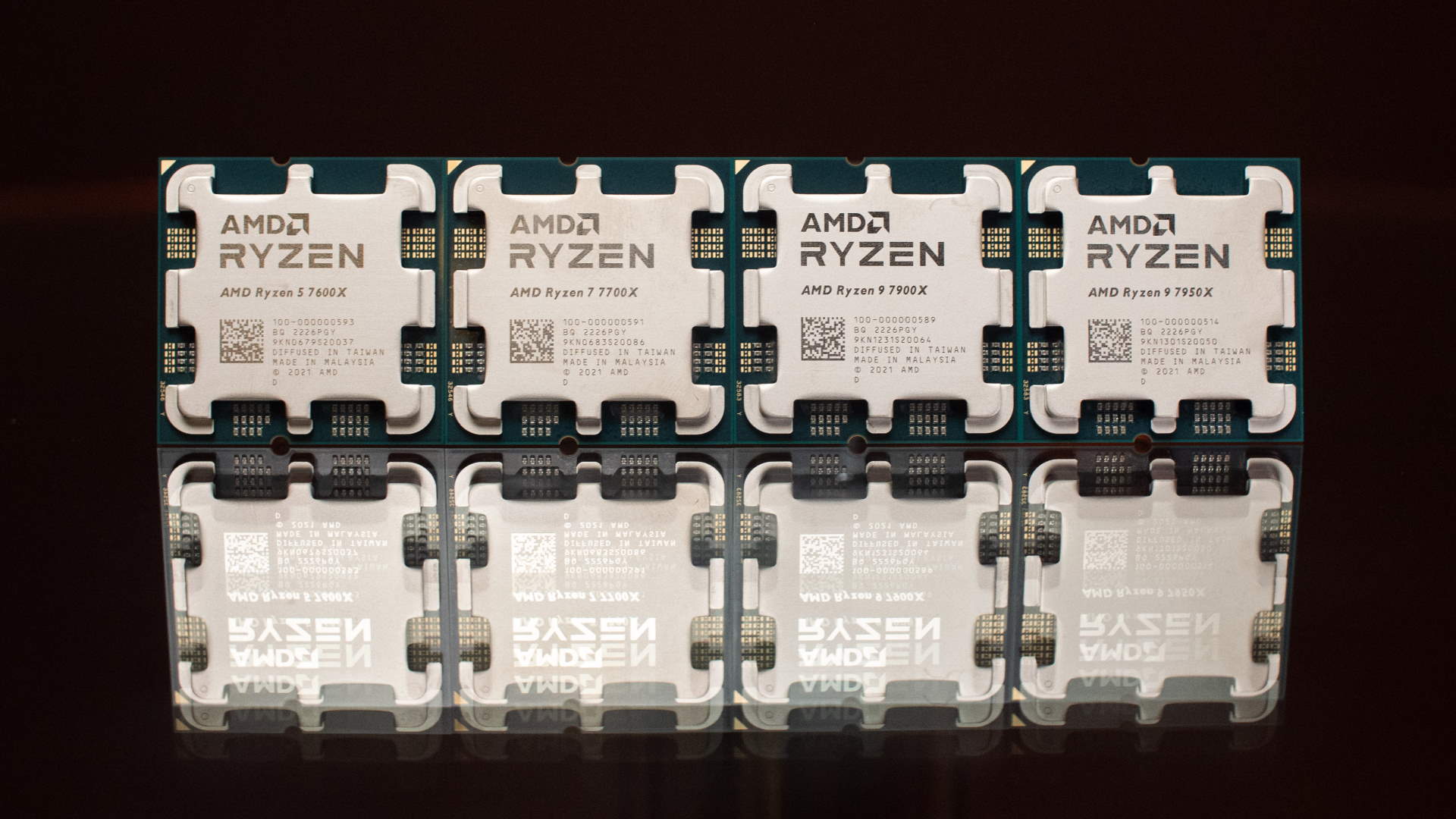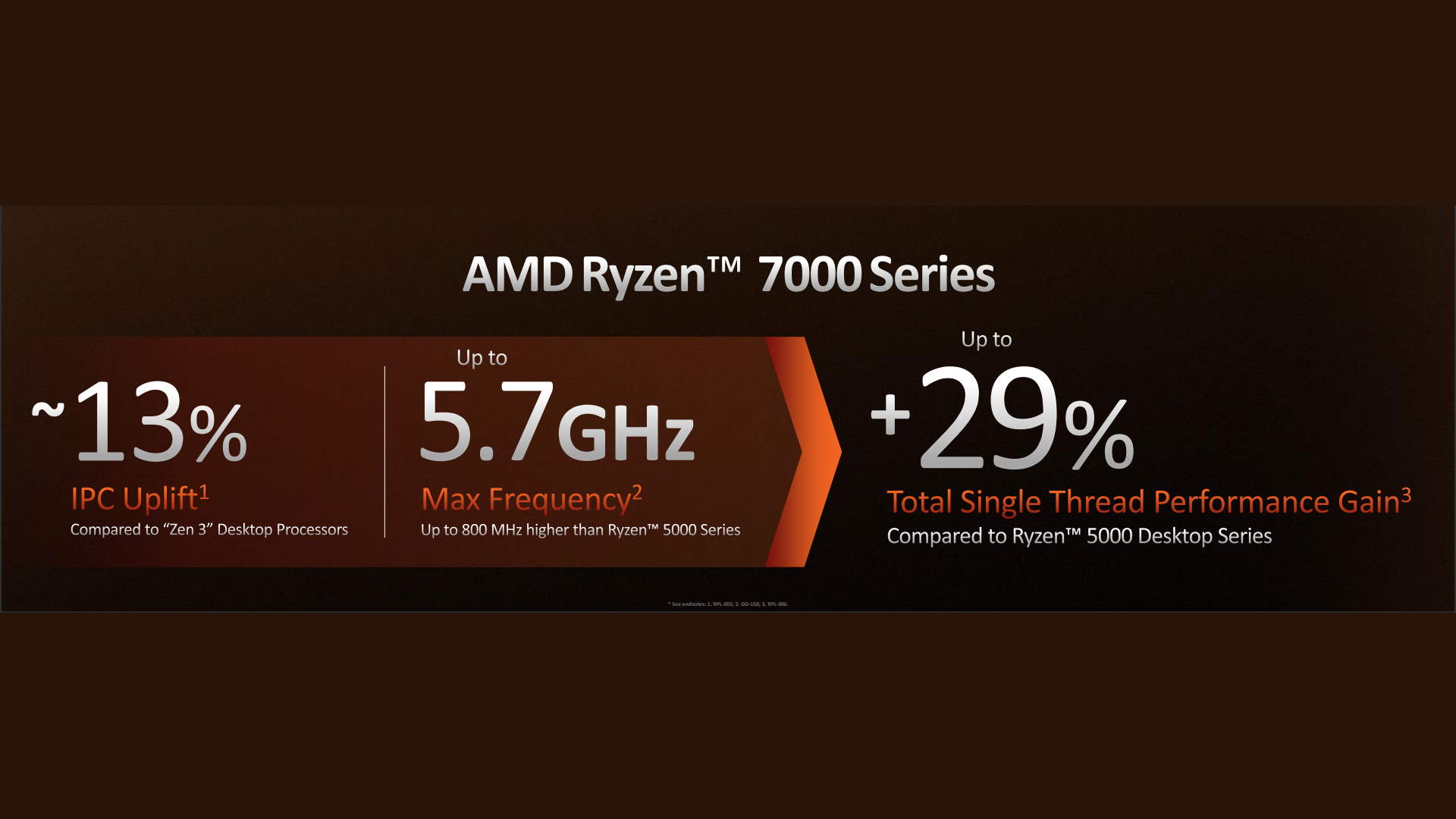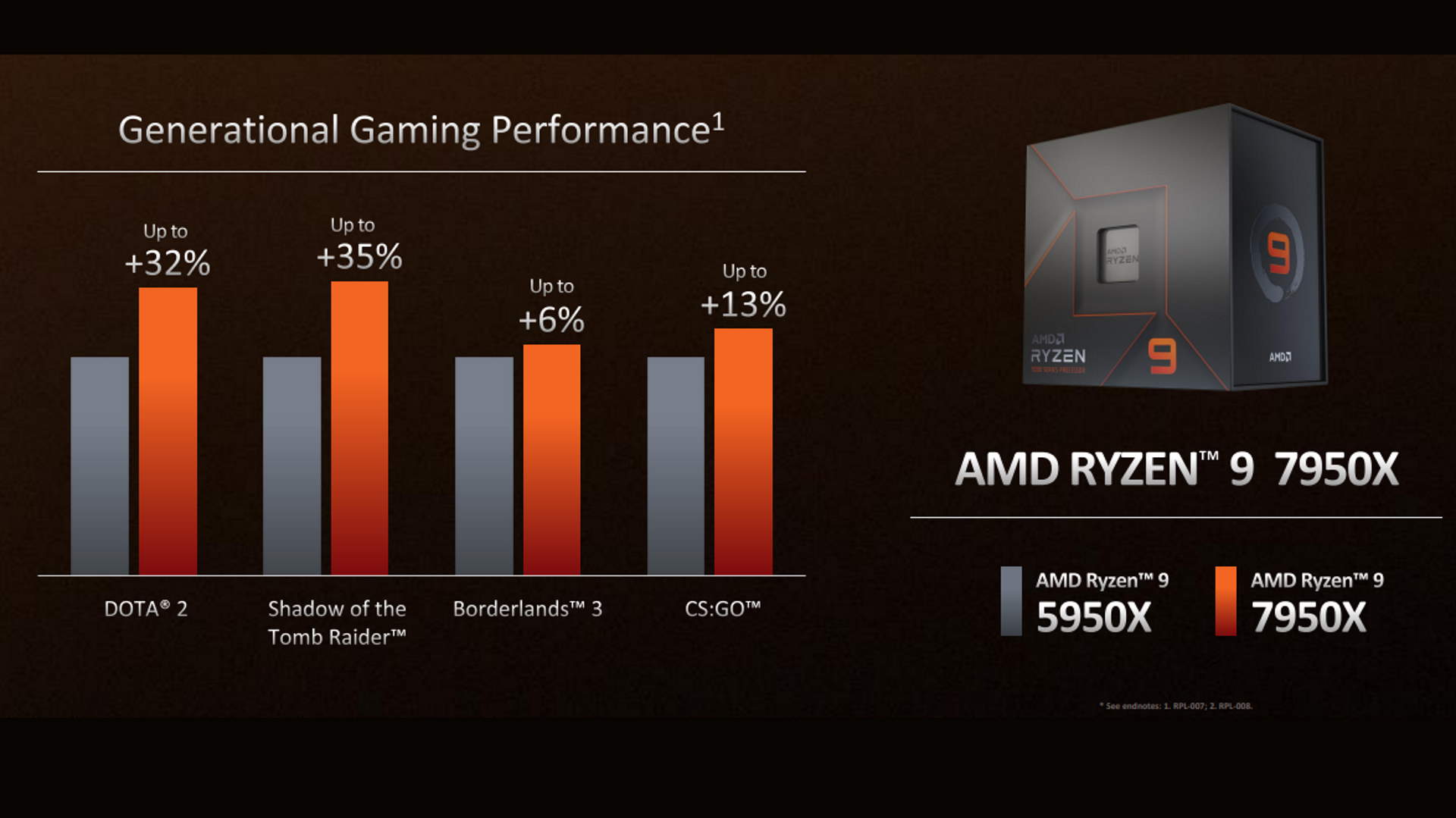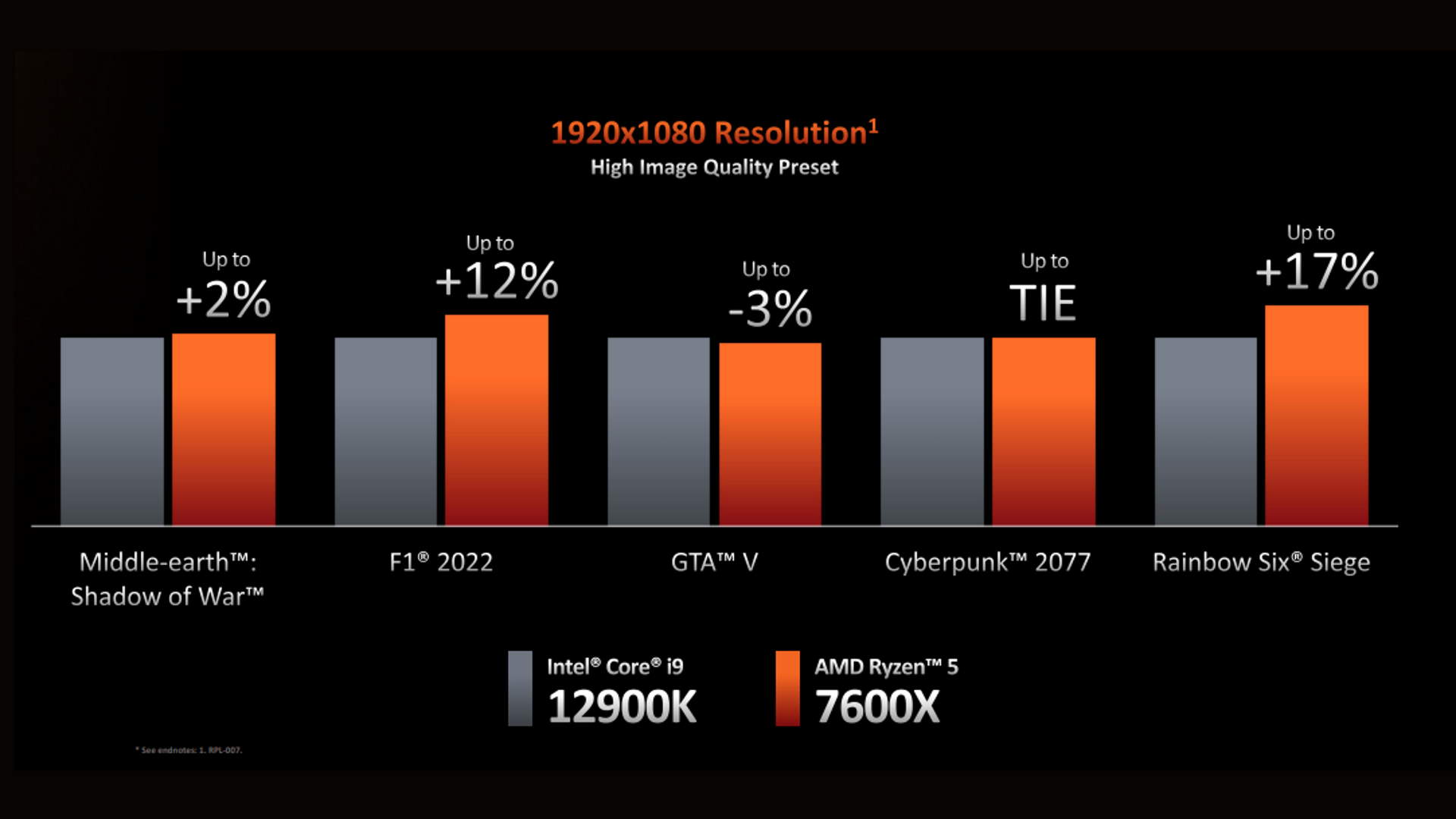AMD announces its new Ryzen 7000-series CPUs are now faster than we all thought
The new Zen 4 chips have got a higher IPC and single threaded bump than we were told at Computex in June.

AMD has today taken the wraps off its new Ryzen 7000-seres CPUs, claiming higher than expected performance for its new Zen 4 processors. It also promised the best gaming CPU will land on September 27 for $699. That's the 16-core, 32-thread Ryzen 9 7950X, and, contrary to the earlier pricing rumours, that puts it a full $100 below the original price of the similarly specced Zen 3 Ryzen 9 5950X.
The initial gen-on-gen performance boost for the new Zen 4 CPUs was between 8 and 10% instructions per clock (IPC) increase, but the biggest surprise of today's keynote at AMD's Austin tech day is the upwards adjustment of that number to ~13%.
For contrast, the 19% IPC boost for Zen 3 over Zen 2 was called "historic" at the time, and this isn't a million miles off that. For something that was suspected might be a bit more iterative in terms of performance gains that's not looking bad.
Obviously, we're relying on normalised metrics, and a geomean score across multiple different benchmarks—both computational and gaming—so that still has to be taken with a touch of salt until we get the different chips into our own test rigs for a proper CPU playtest.
For us gamers the single threaded metrics are arguably more important than an ephemeral IPC increase, and AMD is also adjusting the previous 15% total single threaded performance gain up to 29%. That's almost double, though that number is taken from a Geekbench test compared to a 5950X chip, rather than anything actually gaming related.
But AMD isn't just promising stellar gaming performance on its most powerful, highest spec processor, at today's event in Austin Dr. Lisa Su also demonstrated just how far ahead of Intel's Core i9 12900K its lower-end Ryzen 5 7600X is in gaming terms.
After initially showing AMD's new six-core CPU besting Intel's 16-core Alder Lake chip by 11% in F1 2022, it showed an average 5% gain over the competition across a suite of five games.
Keep up to date with the most important stories and the best deals, as picked by the PC Gamer team.



It does bear saying that of those five games, Cyberpunk 2077 shows a tie with Intel, and GTA V shows a 3% deficit in gaming performance. Still, we are talking about a $299 processor being able to deliver against a $650 (at launch) chip, which is an impressive showing.
In between the Ryzen 9 7950X at the top and the Ryzen 5 7600X at the bottom of the initial four CPU launch stack there's the Ryzen 9 7900X and the Ryzen 7 7700X processors. Pricing-wise, the rest of the new chips are either the same price at launch as their predecessors or, in the case of the 7700X, a little cheaper than the equivalent Zen 3 octa-core processor.
| Header Cell - Column 0 | Price | Cores | Threads | Base clock | Boost clock | Cache (L2+L3) | TDP |
|---|---|---|---|---|---|---|
| Ryzen 9 7950X | $699 | 16 | 32 | 4.5GHz | 5.7GHz | 80MB | 170W |
| Ryzen 9 7900X | $549 | 12 | 24 | 4.7GHz | 5.6GHz | 76MB | 170W |
| Ryzen 7 7700X | $399 | 8 | 16 | 4.5GHz | 5.4GHz | 40MB | 105W |
| Ryzen 5 7600X | $299 | 6 | 12 | 4.7GHz | 5.3GHz | 38MB | 105W |

Best CPU for gaming: The top chips from Intel and AMD
Best gaming motherboard: The right boards
Best graphics card: Your perfect pixel-pusher awaits
Best SSD for gaming: Get into the game ahead of the rest
The new chips will launch at the end of September alongside a whole new motherboard chipset and socket. The new X670 and X670 Extreme motherboards will launch at the same time, starting at $125, though with many, many far more expensive options being offered out by the likes of Asus, Gigabyte, and MSI.
The more affordable B650 and recently announced B650 Extreme boards won't appear until October, though will still offer both PCIe 5.0 and DDR5 support, but with only the Extreme version offering both graphics and storage support for PCIe 5. Though if you were hoping PCIe 5.0 SSDs might launch alongside Zen 4 it looks like that's slipped a bit, as now the first next-gen SSD is set for a November 2022 launch.

Dave has been gaming since the days of Zaxxon and Lady Bug on the Colecovision, and code books for the Commodore Vic 20 (Death Race 2000!). He built his first gaming PC at the tender age of 16, and finally finished bug-fixing the Cyrix-based system around a year later. When he dropped it out of the window. He first started writing for Official PlayStation Magazine and Xbox World many decades ago, then moved onto PC Format full-time, then PC Gamer, TechRadar, and T3 among others. Now he's back, writing about the nightmarish graphics card market, CPUs with more cores than sense, gaming laptops hotter than the sun, and SSDs more capacious than a Cybertruck.

